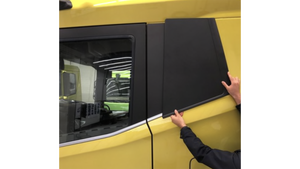October 1, 2005
The pace and magnitude of change in the global plastics trade has forced the Society of the Plastics Industry (SPI) to abandon the sidelines and dive into the scrum, advocating on behalf of the U.S. plastics industry in debates such as the one provoked by CAFTA.
When the office of the United States Trade Representative (USTR) began negotiating the terms under which Vietnam might join the World Trade Organization this summer, Karen Toliver received a phone call.
"[The USTR] wanted to know what are the concerns of the plastics industry with respect to Vietnam," explains Toliver, who was named senior director, international trade and industry statistics for the SPI (Washington DC) in January of this year.
An attorney, Toliver is quite familiar with the USTR, coming to SPI with 14 years of trade-law experience, most recently at international firm Akin Gump Strauss Hauer & Feld LLP, where she represented U.S. and foreign companies in antidumping and countervailing trade issue cases, among others.
The hiring of Toliver, and the active lobbying of SPI preceding passage of the Central American Free Trade Agreement (CAFTA)-including SPI President Bill Carteaux meeting with White House Deputy Chief of Staff Karl Rove, U.S. Trade Ambassador Rob Portman, Indiana Representative Mark Souder, and other officials-are indicative of a different trade tack for SPI, making calls from the USTR more likely in the future.
"In trade," Toliver says, "SPI was in more of a monitoring mode and information-sharing mode. We''re still monitoring, and we''re still sharing information and educating the members because they definitely need to understand how these trade rules and laws work, but we''re stepping up and doing advocacy now."
Finding a champion
In the case of CAFTA, that advocacy meant speaking up for processors when it was revealed that although materials, molds, and machinery would have tariffs lifted, processed products like pipes, tubes, sheet, film, packaging, and housewares would still be subject to duties as high as 20%.
"The package we were looking at was one where for three of our segments, tariffs were immediately eliminated," Toliver says. "For processed products, the tariffs are going to stay in place, although they were going to be reduced over a five- to 10-year period."
With the help of Congressman Souder, whose third district in Indiana features a strong plastics processing presence, SPI was able to extract assurances from the White House that processors would benefit from freer trade with countries like Costa Rica and the Dominican Republic sooner rather than later.
"[Souder] became our champion on this issue," Toliver says. "He conveyed our concerns to President Bush and Ambassador Portman and was able to get them to formally commit that they would invoke the tariff-acceleration provision for the plastics industry, working with SPI to do so."
Three-pronged approach
Toliver and the SPI will now work with members to develop a strategy for the tariff-acceleration talks, identifying key products and countries where removing duties will have the most benefit for U.S. plastic manufacturers.
"We have to identify for which specific products we really need the tariff protection to come down on at a much faster pace," Toliver says. "Then that''s going to be part of what we work out with the USTR."
Beyond CAFTA, Toliver says the SPI plans to use direct contact with its ranks and feedback from its Global Business Council, which is made up of members, to determine what trade issues it should remain aware of.
Toliver envisions a three-pronged trade program, featuring education, advocacy, and services. "It is our job to take CAFTA and really move away from the policy issues," Toliver says, "and take it down to a business level, so our members can really, truly see what impact it can have on their businesses."
This will eventually include the planning and organizing of trade missions to new markets. In the meantime, Toliver and SPI plan to maintain a high profile on Capitol Hill-a strategy that''s already paying dividends.
"I''m trying to ensure that in all of these issues we are on top of it and advocating the industry''s interests," Toliver says. "It''s been generating a lot of additional work for me, but it''s working; I''m getting calls now."
Tony Deligio [email protected]
You May Also Like


